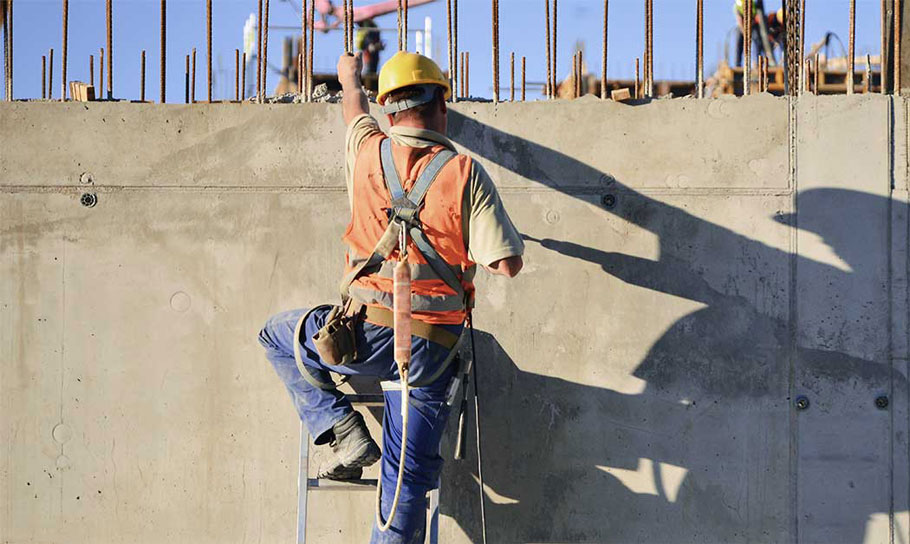
The Government has pledged to ‘get Britain building again’: it's aiming to deliver 1.5 million homes in its first five-year term – a level of output not seen since 1977. With major housebuilders currently underdelivering, small and medium-sized enterprise (SME) housebuilders are essential if the Government is to come anywhere close to delivering its stated policy of 300,000 homes a year.
The UK housebuilding sector faces a complex mix of challenges, including planning delays, financing constraints, affordability issues and sluggish market momentum. But SME housebuilders – typically defined as those building fewer than 100 homes per year – are bearing the brunt. Unlike large national developers, they often lack the financial resilience to absorb prolonged downturns or delays in sales.
That there are now 85% fewer SME housebuilders than a generation ago, delivering just 12% of new homes, speaks to the difficulties that these firms face.
Barriers to building for SME housebuilders
Planning is a major challenge
Problems in securing planning permission remains a key obstacle for the whole sector, but one that disproportionately affects SME housebuilders. According to a survey of over 200 SME housebuilders published by the Home Builders’ Federation (HBF) in 2024, 93% say it is a major barrier to growth.
The cost, complexity, and time required to secure permission – sometimes exceeding a year and involving multiple consultants – can render projects unviable. Unlike large developers with diversified portfolios, SMEs often rely on one or two sites, making them highly vulnerable to delays.
Shortage of land with implementable planning consent drives up price
Land availability is a challenge for SME housebuilders, who often get overlooked by state owners of land for being too small. The growing strain on the planning system has led to a shortage of land with implementable planning consent, driving up land prices.
This is being exacerbated by a decline in the number of planning permissions granted: Latest Government figures for England show that in the 12 months to March 2025 there was a 7% decline year on year to 265,800. Residential approvals fell even more sharply, down 8% year-on-year to 29,300.
Challenging market environment
Demand-side constraints have had a big impact on SME developers over the past two years, primarily due to higher mortgage costs which have impacted consumers’ ability to buy.
Larger developers can afford to hold back delivery to wait for more favourable market conditions allowing them to maintain margins. But for smaller housebuilders, a reduction in the cadence of sales and a subsequent build-up of finished stock can have an impact on lending covenants and result in facility defaults in the short-term. This can lead to liquidity challenges unless prices are reduced, impacting profitability and, in the longer-term, solvency.
On the supply side, the easing of inflationary pressures on build costs has helped reduce strain on margins, although costs remain significantly higher than pre-2021 levels.
Disruption in the supply chain remains a key issue, however. This has been exacerbated by the high number of insolvencies in the construction sector. Forty-two percent of SME construction firms cite supply chain disruption as a major problem for their business, compared with only 27% of SME firms operating in other sectors. It means SME housebuilders need to do more due diligence on potential contractors, adding both time and cost.
Homes England partnerships to improve access to finance
In recent years there's been a renewed political impetus to improve financing in the sector to support SMEs. Several new initiatives have been launched to improve SME access to funding and land:
- In December 2024, the Government extended the Home Building Fund by £700 million, aiming to support the delivery of up to 12,000 new homes by SME developers
- In January 2025, Homes England and Invest & Fund expanded their lending alliance, increasing the fund to £47.5 million and extending its term to March 2030 – the partnership now offers development loans of up to £4 million, with up to 85% loan-to-cost, and is expected to support the construction of 600 additional homes
- Homes England also launched SME Accelerator Loans, combining development finance with land acquisition support for follow-on sites
- Additionally, a £250 million joint venture was formed with Oaktree Capital Management and Greycoat Real Estate to unlock and accelerate large-scale site development across England
These initiatives build on earlier partnerships such as the Made Partnership (with Barratt Developments and Lloyds Bank) and a £50 million investment into Schroders Capital’s real estate impact fund.
Good demand from lenders and investors
In addition to funding available through joint ventures, demand for residential investment remains strong across a broad range of lenders and investors. According to CBRE’s 2025 European Investor Intentions Survey, 98% of investors targeting the UK expect to acquire the same or more real estate this year compared to 2024. This renewed appetite is driven by stabilising interest rates, improved market sentiment, and a growing pipeline of opportunities.
However, the amount of leverage lenders are willing to offer has continued to decline – down approximately 10-15% compared to 2021 – due to elevated debt servicing costs and more conservative risk assessments.
Purpose-built student accommodation (PBSA) and build to rent (BTR) remain particularly attractive. Tenant demand is recovering, especially in urban centres, and investor interest in stabilised rental assets remains high. This is despite ongoing uncertainty around the full implementation of the Renters (Reform) Bill, which is expected to reshape landlord-tenant dynamics.
What should management prioritise?
A focus on both financial and operational resilience is essential to allow SME housebuilders to capitalise on the current demand and political sentiment to accelerate housebuilding. Management should consider the following questions:
- Are your working capital requirements appropriately funded?
- Have you undertaken granular forecasting to understand problems areas in the business?
- Are you forecasting to be compliant with your debt covenants and do you know how your lenders will react if there's a covenant breach?
- Are you actively managing your supply chain risk?
- Is your cost base flexible enough to adapt to changes?
- Have you stress-tested your business plan against different market scenarios?
- Are you maintaining strong relationships with lenders and investors?
SME housebuilders play a vital role in delivering high-quality, locally tailored homes. With the right support and strategic focus, these firms can overcome current challenges and help drive the sector forward.
For support in navigating stress, securing funding and building long-term resilience, contact our experts: Oliver Haunch, Rob Parker and Sam Dean
Straight to your inbox










